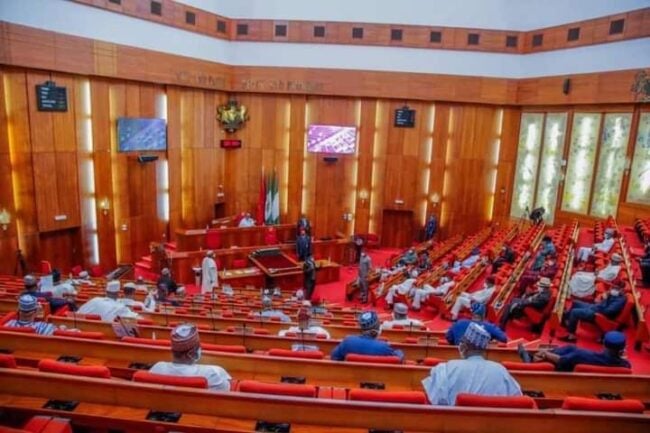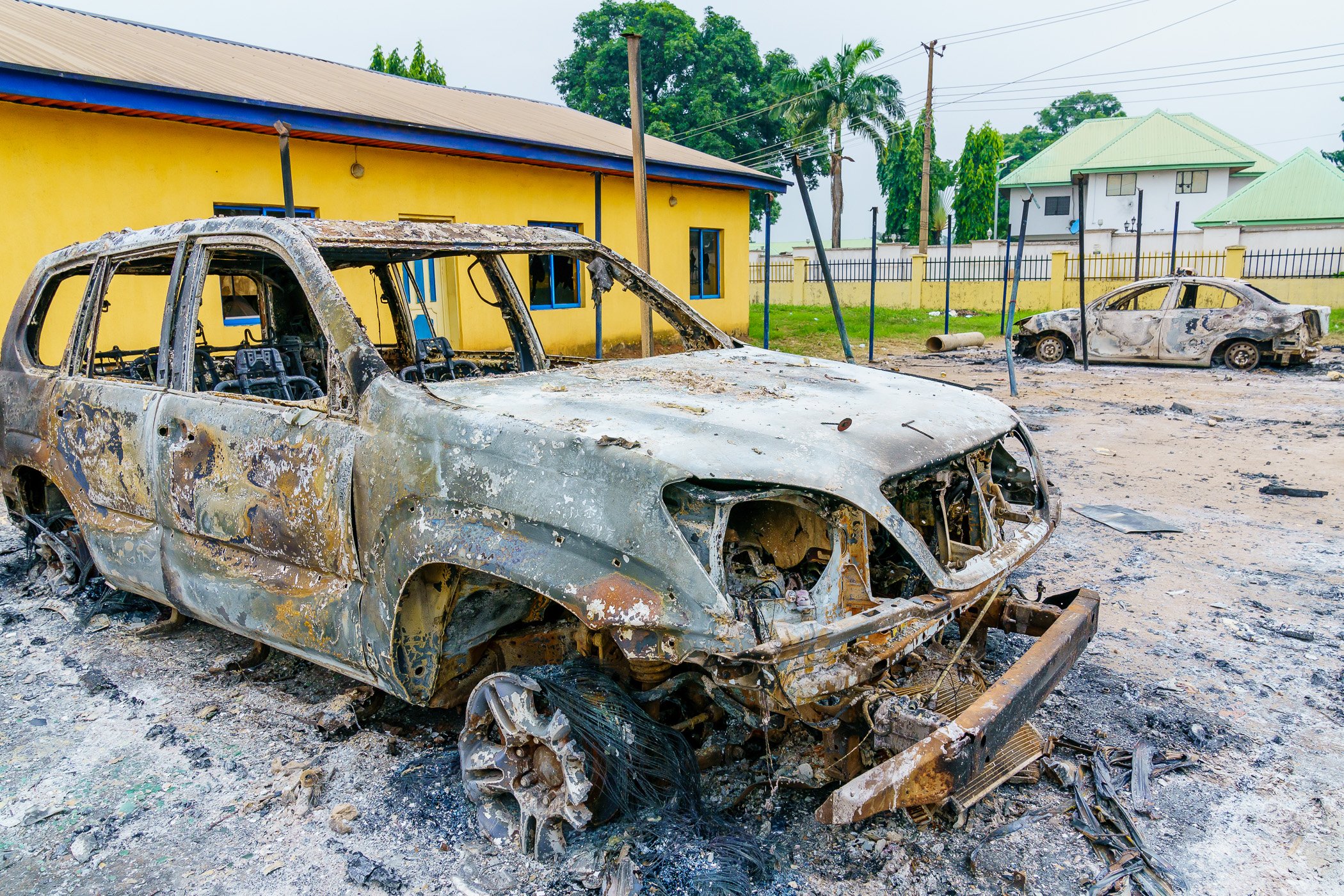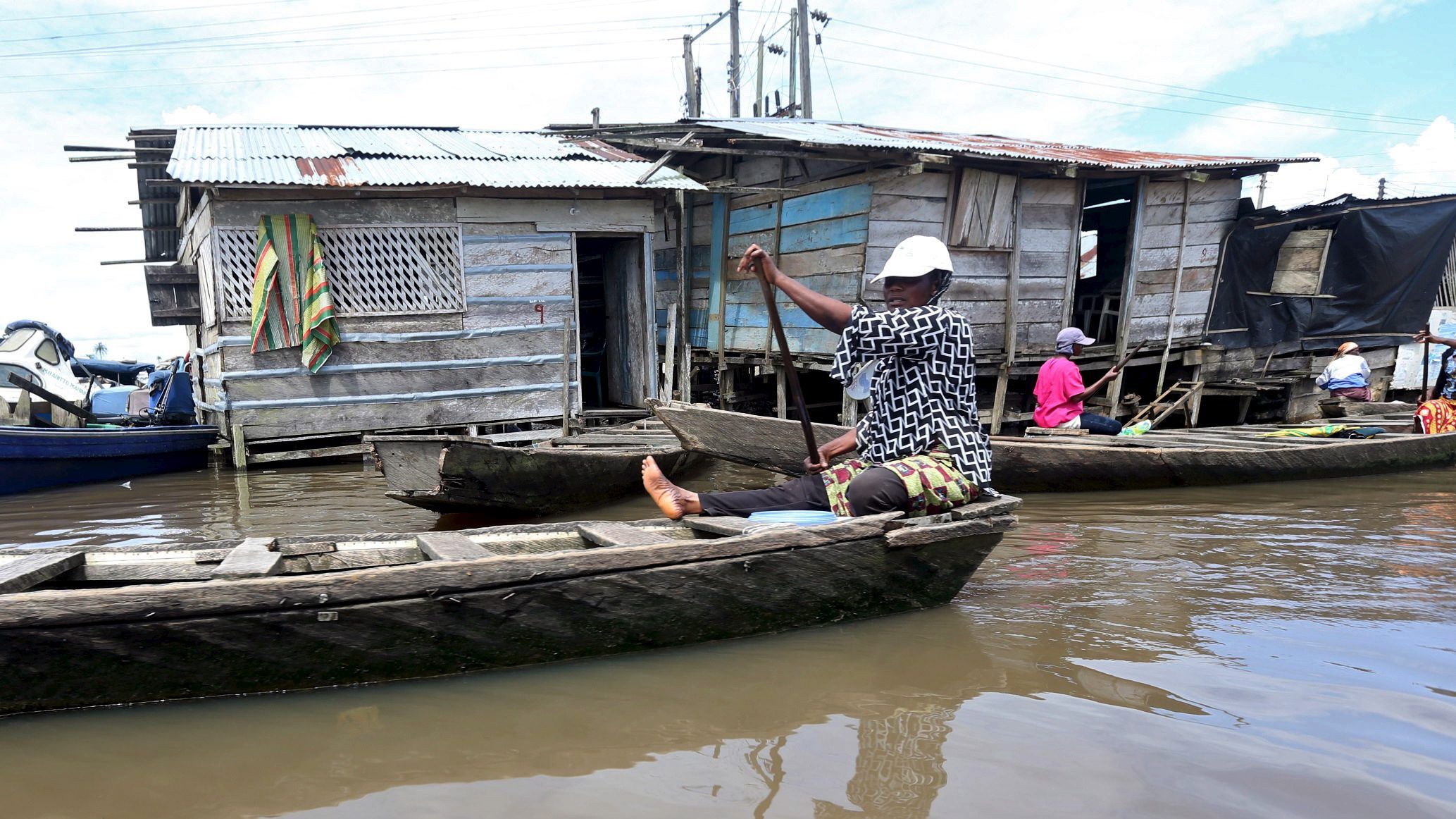Violence against Nigerian students is growing at an alarming rate. Yet, there seems to be no hope of a quick end in sight. Aside the usual reports of mass kidnapping of students from their schools, an anomaly that has become a key part of the narrative in our educational system, students are now being attacked off campuses. This week alone, there were reports of at least three tragic deaths from such attacks.
On Monday, a trigger-happy soldier reportedly shot dead Gray Ekpezu, a final year student of medicine and surgery, University of Calabar, Cross River State.
Neighbours claimed the student was shot for no reason in the evening of Friday, July 9, in front of his compound at Edibe Edibe in Calabar South of the state.
When irate residents took to the streets to protest the unfortunate incident, one of the battalion commanders in the area reportedly advised them not to take laws into their hands, with a promise that the culprit would be brought to book. Since then, nothing has been heard.
Advertisement
There is another report of a student identified as Jennifer Ugadu who was also allegedly murdered by her soldier boyfriend, Jay Matol.
Jennifer was a model and 200-Level student of Niger Delta University (NDU), in Bayelsa State. She was reportedly found dead in her apartment with multiple stab injuries and bullet wounds on Sunday, July 11, days after she was killed.
It was reported that Jay Matol had earlier accused Jennifer of being unfaithful. According to reports, he first raped her before shooting and stabbing her to death. If the message alleged to have been written by Matol on Jennifer’s department’s WhatsApp group is anything to go by, he gave himself up as he was alleged to have announced on the group that he killed her and planned to kill himself too.
Advertisement
Also, on Tuesday, a Biochemistry student of Delta State University (DELSU), Abraka Stephen Odje, was killed on his way to school while two others, Divine Omajuwa and Husseina Hamza of Geology and Pharmacology Departments, respectively, were reportedly abducted. Fortunately, the abducted students were released on Wednesday as confirmed by the state police command.
In another report, the President of the Students’ Union Government of the Federal College of Education, Pankshin, Plateau State, Mr Zuma Francis Fwanshiwa, confirmed the kidnap of a final year student of the college.
The kidnapped student, identified as Felix Gele, is in 400-Level and a final year student in the Department of Psychology. The kidnappers according to the union leader are asking for N5m ransom.
These reports represent only the tip of the iceberg, since many more cases might have gone unreported. As at July 7, 2021, the UN estimated that at least 950 students had been abducted from Nigerian schools in seven months with nearly 500 children kidnapped in the past six weeks alone.
Advertisement
Surprisingly, despite this grim picture of insecurity in Nigerian schools, our lawmakers are more concerned about stopping the Joint Admissions and Matriculation Board from allowing any child below 18 years to sit for the Unified Tertiary Matriculation Examination. For them, age has a lot to do with learning ability, particularly in higher institutions.
I’m probably missing something here, because I still can’t understand why the age a child takes UTME is such a national issue at a time like this. It isn’t as if our higher institutions have complained that 16-year-olds are finding it difficult to cope with learning. On the contrary, we have seen many 20-year-olds emerging best graduating students. What has the time a candidate sits for UTME got to do with life-threatening challenges confronting the generality of Nigerian students now? I guess thousands of students across the country would rather want to know what government is doing to guarantee their safety in and out of school.
This is what I think the lawmakers should be talking about. By now, the committee on education at the National Assembly should be championing the campaign for the declaration of a state of emergency on Nigerian schools. They should be thinking of how our schools could become safer for both students and workers.
Honestly, when confronted with leaders that would rather ignore leprosy and concentrate on curing ringworm, one may not help but question the intellectual capacity of such people. Of all the problems confronting the education sector in Nigeria, should legislating on admission age be the priority now? Are the lawmakers suggesting that a child should sit at home and remain idle for two years to clock 18 before going to a higher institution? Funny!
Advertisement
This dearth of thinking is also manifesting in Akwa Ibom State where the government has taken a decision to ban pupils older than 12 years from admission into secondary schools in the state. The state governor, Udom Emmanuel, reportedly said the move was aimed at curbing cultism in the state’s schools.
Akwa Ibom reminds me of El-Salvador’s draconian abortion law where any woman who suffers a miscarriage is immediately viewed with suspicion. Recently, a woman, Sara Rogel García, 29, was recently let out of prison after spending eight years in prison simply because she had an accident that resulted in the death of her unborn child.
Advertisement
Rogel slipped and fell while washing clothes eight months into her pregnancy. The impact caused her to lose consciousness, and her baby was stillborn. By the time she awoke in the hospital, she was handcuffed to her bed. Four days later, while still recovering from her injuries, not to mention the emotional toll of having lost a baby she had been looking forward to having, she was sent to jail.
Relating this to the Akwa Ibom story, the state has wrongly concluded that any child above 12 years that is not yet in secondary school must be a cultist. There can only be a few exceptions and that is why the government thinks granting admission to such exceptions after a written undertaking by their parents is good enough.
Advertisement
To the state, the solution to halting massive recruitment of students into cultism is to prevent those that can recruit others from going to school. What now happens to these children when they are left outside school? Let’s even assume that all kids above 12 years in the state are cultists, does that mean they are doomed for life?
The state was acting as if it was doing the children a favour by allowing them to go to school. It has not yet dawned on these politicians that going to school is the inalienable right of every Nigerian child and nobody, including the governor of any state, has the power to deny a child the right to access education for whatever reason. If a child is found to break the law or endanger the life of others, the state is empowered to use the instrument of law to deal with the situation. Attempting to stop a child from going to school because you think the child can spread cultism, to me, is a lazy approach to solving a problem.
Advertisement
Beyond this, what Akwa Ibom State has proved to the world is that apart from lacking the political will to implement Nigerian laws, it does not even know the provisions of its own laws.
Take for instance the UBEC Act (2004) which has been domesticated by every state in Nigeria including Akwa Ibom. The law guarantees unfettered access to nine (9) years of formal basic education for every Nigerian of school age. As a matter of fact, every government in Nigeria is expected to provide free, compulsory and universal basic education for every child of primary and junior secondary school age while all parents and guardians must ensure that their children or wards attend and complete their primary school education and junior secondary school education.
This is the law. It does not stipulate any condition that may make a state to refuse to provide free and compulsory education. Unfortunately, while any parent who contravenes Section 2(2) of the Act commits an offence and liable on first conviction, to be reprimanded; on second conviction, to a fine of ₦2,000.00 or imprisonment for a term of 1 month or both; and on subsequent conviction, to a fine of ₦5,000.00 or imprisonment for a term of two months or to both, there is no punishment for any state that fails to provide compulsory basic education to their children. That is why a state like Akwa Ibom can publicly say it won’t allow some kids to be in school. This lacuna in the UBEC Act should be reviewed as soon as possible.
In the mean time, the Akwa Ibom State government should be reminded that it is not doing any child any favour by allowing them to go to school. Education will ultimately sustain the state; it will liberate the mind of the people and make them very useful members of the society.
Our leaders’ preference for a quick fix as opposed to a well-thought out solutions to real problems, is also reflecting in the way the National Youth Service Corps is handling the problem of insecurity of corps members across the country.
I learnt the agency is no longer giving prospective corps members the chance to choose their preferred state. It has also made it compulsory for enrolees to provide the name of the person to contact in case of death at the point of registering for the scheme. I guess this is NYSC’s own way of subtly passing across the message that any corps member could die in the course of service. After all, insecurity in Nigeria has reached the roof top and there is no sign that it is coming down soon.
The bottom line is that a nation is as good as the quality of its leaders. The earlier we start putting deep thinkers at the helm of our affairs, the faster our journey to our El-Dorado would be.
Olabisi Deji-Folutile (PhD) is the editor-in-chief, franktalknow.com and member, Nigerian Guild of Editors. Email: [email protected]
Views expressed by contributors are strictly personal and not of TheCable.
Add a comment







